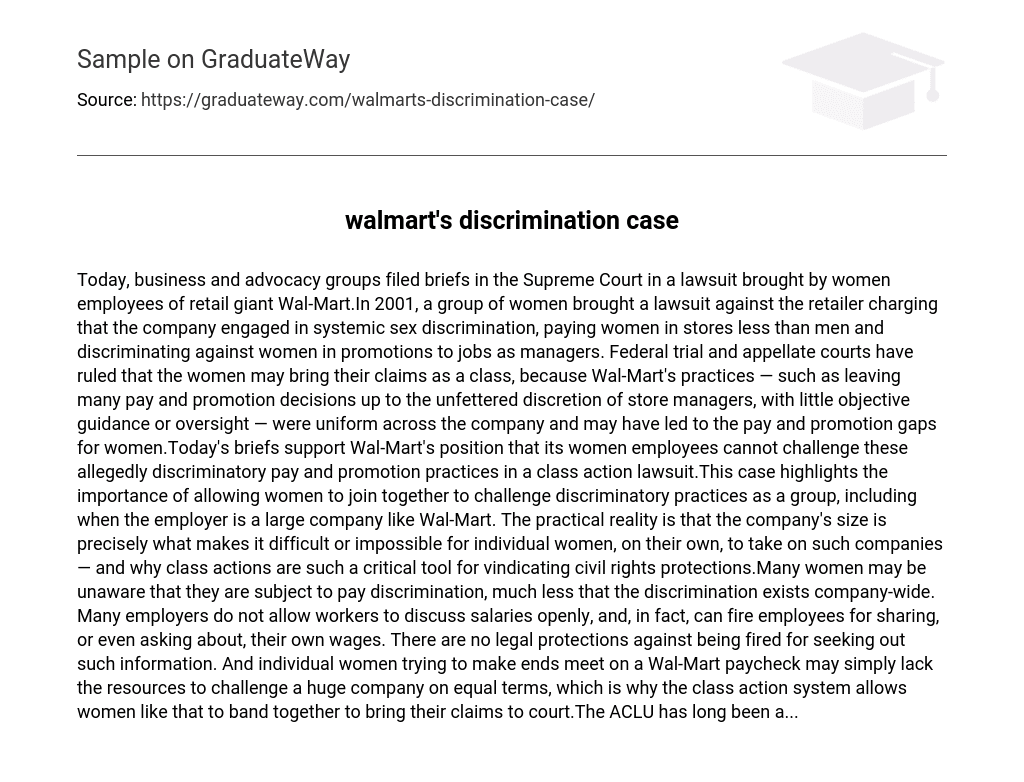Today, business and advocacy groups filed briefs in the Supreme Court in a lawsuit brought by women employees of retail giant Wal-Mart.In 2001, a group of women brought a lawsuit against the retailer charging that the company engaged in systemic sex discrimination, paying women in stores less than men and discriminating against women in promotions to jobs as managers. Federal trial and appellate courts have ruled that the women may bring their claims as a class, because Wal-Mart’s practices — such as leaving many pay and promotion decisions up to the unfettered discretion of store managers, with little objective guidance or oversight — were uniform across the company and may have led to the pay and promotion gaps for women.Today’s briefs support Wal-Mart’s position that its women employees cannot challenge these allegedly discriminatory pay and promotion practices in a class action lawsuit.This case highlights the importance of allowing women to join together to challenge discriminatory practices as a group, including when the employer is a large company like Wal-Mart. The practical reality is that the company’s size is precisely what makes it difficult or impossible for individual women, on their own, to take on such companies — and why class actions are such a critical tool for vindicating civil rights protections.Many women may be unaware that they are subject to pay discrimination, much less that the discrimination exists company-wide.
Many employers do not allow workers to discuss salaries openly, and, in fact, can fire employees for sharing, or even asking about, their own wages. There are no legal protections against being fired for seeking out such information. And individual women trying to make ends meet on a Wal-Mart paycheck may simply lack the resources to challenge a huge company on equal terms, which is why the class action system allows women like that to band together to bring their claims to court.The ACLU has long been a…





